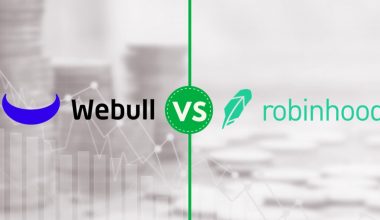An asset that is formed with the goal of allowing money to grow is essentially what makes up an investment. The wealth generated can be used for a variety of goals, including bridging income gaps, saving for retirement, or carrying out certain particular commitments like loan repayment, tuition payment, or the acquisition of other assets. It is important to comprehend the meaning of investment because selecting the appropriate instruments to achieve your financial objectives might be challenging at times. You can make the best decisions if you understand the significance of investments in the context of your specific financial circumstances. This article explains the returns and the investment types available. We also explained the importance of investment and make you see reasons why you need to invest. Enjoy the ride!
What Is an Investment?
The purpose of investing is to provide income and build wealth over time. Any method for producing potential future revenue might be referred to as an investment. Buying bonds, equities, or real estate property are a few examples of this. A property that can be utilized to create things can also be bought and regarded as an investment. In principle, any activity made with the intention of generating additional revenue can also be seen as an investment. For instance, increasing knowledge and enhancing abilities are frequently the motivations behind choosing to seek further education.
It is hoped that the student’s career earnings will grow as a result of the initial time spent attending classes and financial commitment to tuition. There is always some risk involved with an investment because it is focused on the possibility of future growth or income. An investment might not produce any revenue or might even depreciate over time. A business in which you invest, for instance, might fail. Alternatively, there might not be a lot of work opportunities in that industry for the degree you spent the time and money on obtaining.
A number of services, including those that are intended to help people and corporations increase their wealth, are offered by an investment bank to both individuals and businesses. Investment banking can also refer to a particular branch of banking that deals with raising money for other businesses, governments, and other organizations. Also, investment banks assist in the selling of securities, underwrite new debt and equity securities for all kinds of firms, and arrange mergers and acquisitions.
Investment Types
The following are the types of investment:
#1. Bonds
Bonds are a type of debt security. You are making a loan to the issuer (a corporation or the government) when you buy a bond. And you’ll get your money back plus interest, or coupons, as they’re known in the bond market. The biggest danger is that the borrower will go bankrupt and be unable to repay the loan. In general, the larger the likelihood that this will occur, the lower the rating and the higher the interest rate. Loans to the federal government, known as U.S. Treasuries, are widely considered the safest investment option, followed by municipal and state bonds and finally corporate bonds.
The length, or maturity, of a bond, can also vary. Some of these loans will be relatively short-term, with repayment to the lender occurring quickly, while others could stretch on for years. In general, the lesser the risk and the lower the investor stands to earn, the sooner the money is scheduled to be paid back.
#2. Stocks
Stocks, often called shares or equities, are a popular and straightforward investing option. If you want a piece of a publicly listed corporation, you should buy some of its stock. The stock of many of the country’s largest corporations is traded on public exchanges. Companies like ExxonMobil, Apple, and Microsoft are just a few examples.
Investors purchase shares in a company with the expectation that their value would rise over time. Of course, you run the risk of losing money if the stock’s price drops.
#3. Precious Objects and Collectibles
Gold and precious stones, Impressionist paintings, and signed LeBron James shirts are all examples of items that could be considered ownership investments if purchased with the goal to resell at a profit. They are subject to the same market fluctuations as any other investment. Art and collectibles go in and out of style. The price of gold and stones varies with the market. They also incur expenses from the perspective of the investor. To keep their worth, they need to be insured and preserved in excellent shape.
#4. Mutual Funds
Mutual funds are pools of capital from multiple investors that are spread out among multiple companies. There are two types of management styles for mutual funds: active and passive. Investors in an actively managed fund have their money allocated by the fund manager to certain securities. In order to maximize investor returns, many fund managers aim to outperform a specific market index. The Dow Jones Industrial Average and the S&P 500 are examples of the kind of major stock market indices that a passively managed fund, also known as an index fund, will simply monitor. Securities such as stocks, bonds, commodities, currencies, and derivatives are all available to mutual funds as investment options.
Depending on the investments they make, mutual funds may be subject to many of the same hazards as stocks and bonds. However, because of the diversified nature of the investments, the risk is typically lower.
#5. Real Estate
Investments include the purchase of residential real estate for the purpose of either renting or reselling. Besides being a place to sleep and shower, your home has many other potential uses. It meets an accommodation demand. Its worth could increase or decrease over time, depending on market conditions. In a nutshell, the place you call home not only shelters you, but also has the potential to provide revenue in the form of capital gains upon its eventual sale.
#6. Business
Investment refers to the funds used in the process of establishing and maintaining a business. Due to factors outside financial resources, entrepreneurship is among the most difficult investments. Entrepreneurs might amass enormous wealth simply by inventing and marketing a product or service that meets a market need.
#7. Exchange-Traded Funds (ETFs)
Like mutual funds, exchange-traded funds (ETFs) are a pool of money meant to replicate the performance of a specific index. Shares of ETFs are traded on the stock markets, as opposed to the mutual funds that are purchased through a fund firm. Their worth is determined by their market price throughout the day, whereas the value of your investment in a mutual fund is determined by its net asset value.
Exchange-traded funds (ETFs) generate income by pooling the returns from their holdings. The greater diversification offered by ETFs makes them a popular recommendation for novice investors. Selecting an ETF that follows a diversified index can further reduce exposure to risk. And similar to mutual funds, ETFs can be sold for a profit as their value rises.
#8. Retirement Plans
To save up for old age, many people open a retirement plan, a type of investment account that offers favorable tax treatment. 401(k) and 403(b) plans are just two examples of employer-sponsored retirement savings programs among many others. Individual retirement accounts (IRAs) and Roth IRAs are alternatives to employer-sponsored retirement plans.
Investments in stocks, bonds, and funds can be made through retirement plans in two methods that reduce their effective tax rates. The first type of account allows you to make contributions before taxes are deducted. The second option facilitates tax-free cash withdrawals. Investments made within a retirement plan are subject to the same risks as investments made outside of a retirement plan.
#9. Annuities
An annuity is a type of insurance in which the policyholder receives regular payments. These benefits typically begin in old age, but many people buy them in their twenties and thirties. This is why annuities are a popular way to save for retirement.
There is a wide range of annuity types available. They might be permanent or temporary, depending on the circumstances. Insurance premiums can be paid on a recurring schedule or all at once. They could be linked to the markets in some way, or they could be an insurance policy with no connection to the markets at all. The timing of payments might be either immediate or postponed. They could be set or flexible.
Annuities are a way to ensure a steady flow of money after retirement. They pose little threat, but they also don’t provide much in the way of expansion. Therefore, investors typically treat them as a useful supplement to their retirement savings rather than a primary source of funding.
How to Buy Different Investment Types
Depending on your level of financial experience and the types of assets you’re interested in, you can either open a brokerage account or open a mutual fund. Each is simple, but only one gives you the convenience of having everything handled on your behalf. There are two main approaches to acquiring your preferred investment types:
#1. Open a Virtual Stock Trading Account Today:
A brokerage account and the decision to handle your own investments are both viable options. You may acquire stock, bonds, mutual funds, and more in minutes, allowing you to get your business up and running rapidly. The only drawback is that you will be responsible for making all of your own financial decisions.
#2. Get Help from a Financial Advisor
Hiring a financial advisor is another option for people who want to diversify their investment portfolio. The advisor can do more than just give you the resources to purchase and sell assets; they can also help you develop a comprehensive plan for your financial future and put you up for a comfortable retirement. This method is hands-off, requiring only your approval before any trades or investments are made. If you need assistance opening a brokerage account, your advisor can provide it. You can as well message us, we have our experienced financial advisor available just for you.
What Are Investment Returns?
The rate of return on investment returns is a common metric for gauging an asset’s profitability and usefulness as an investment. Return on investment (ROI) is an attempt to quantify the profit made from expenditure in relation to the outlay of capital.
Investment returns are determined by dividing the gain from an investment by its initial outlay. Percentages and ratios are common ways to represent the outcome.
How to Calculate Investment Returns
The return on investment (ROI) formula is as follows:
ROI= Current Value of Investment−Cost of Investment / Cost of Investment
The rate of return on investment is determined by deducting the amount of money made from the initial investment. An ROI of 1 (or 100%) would be calculated from an investment that earned $100 and had no losses. An investment’s return on investment (ROI) can be calculated quickly and easily, but it has significant drawbacks. For example, because different investments have different time requirements for yielding a profit, comparing their returns on investment (ROI) can be challenging. This is why most institutional investors prefer to utilize alternative metrics like net present value (NPV) or internal rate of return (IRR).
The Use of the ROI Formula Calculation
Return on investment (ROI) calculations are easy and useful for weighing the merits of a potential venture. The result of the calculation may also be used to gauge the success of a given investment thus far. An investment’s return on investment (ROI), whether positive or negative, can be a useful indicator of its worth.
An ROI calculation can help an investor identify profitable investments from those that are not. Investors and portfolio managers might try to get the most out of their money with this strategy.
Importance of Investment
The following are the importance of investment:
#1. Wealth Creation
Wealth creation is one of the importance of investment. Individuals may place varying importance on wealth. It could refer to a definite sum of money, or it could be a collection of aspirational monetary targets. Investing can help you reach your goals either way. It can help you attain your financial objectives more quickly, whether they are paying off debt, sending a child to college, purchasing a home, starting a business, or preparing for retirement. Investing allows you to amass wealth, defined as a rise in the market value of your possessions.
Building wealth is more than a pipe dream that might see you through your old age. Investing in the future can help you leave a monetary legacy for future generations. An inherited fortune can do more than give your kids a solid financial footing for the future; it can also help close the wealth gap that plagues many communities.
#2. Compounding
Compound interest is a powerful tool for investors. With compound interest, your earnings from an investment each period are added to those from the previous periods. Sometimes people will refer to this as “interest on interest.” With compound interest, your wealth can swiftly expand.
#3. To Beat Inflation
The term “inflation” is used to describe the general trend of rising prices over time. When prices rise over time, it indicates that you get fewer goods and services for your money. After 30 or 40 years, the cost of living should have increased significantly, but your money will be worth much less due to inflation. Putting money into investments can help you keep up with inflation. If your savings earn more than the rate of inflation, your purchasing power will increase over time.
#4. Retirement
You should have a substantial nest egg if you intend to retire from your job and cease working altogether. If you haven’t saved enough to support yourself for the next twenty or thirty years, investing can assist. To begin saving for retirement, you might move backward from the target amount you’ve established for yourself. How soon you want to retire, as well as your anticipated retirement lifestyle and spending, will help you arrive at that number. Your retirement goals and your existing financial condition ought to guide your retirement investing approach.
What Is a Good ROI?
Considerations like the investor’s risk tolerance and the amount of time it takes for the investment to produce a return determine what constitutes a “good” ROI. When all other factors are held constant, investors who prefer lesser risk will accept lower returns. Similarly, a higher return on investment (ROI) is typically required for investments with a longer payoff time.
Why Is Investing Important at a Young Age?
The power of compound interest is maximized when you start saving and investing early. You can start building wealth faster if you start investing earlier in life. You may need to set aside a much larger portion of your income if you wait to start investing before reaching your personal and financial goals.
What Are the Objectives of Investment?
- Safeguard your Money.
- Grow your Savings.
- Build Funds for Emergencies.
- Secures your Retired Life.
- Save Tax.
- Fund Bigger Life Goals.
Why Is Diversification Important in Investing?
Spreading your investing capital out over a number of different assets reduces your overall exposure to any one investment. By spreading your investment capital among a number of different companies or asset classes, you reduce the risk of losing everything if any one of them fails.
Final Thoughts
Buying something with the expectation of future financial gain is often called an “investment.” This includes vehicles with low fuel costs and solar panels. In truth, you shouldn’t consider something to be an investment if it depreciates. Instead, an investment is a purchase made with the hope of a future profit. So, why not try investing today? Do you need any help or got any questions? Why not contact us?
Related Articles
- HOW TO CALCULATE ROI: Detailed Guide
- WHAT IS GOOD ROI: Definition, Real Estate, Marketing & Guide
- BEST AUTOMATION MARKETING SOFTWARE: Features and Pricing
- WHY INVESTMENT IS IMPORTANT: In Business & Future Life)
- WHAT IS ROI: Meaning, How to Calculate It, and Guide for A Business






